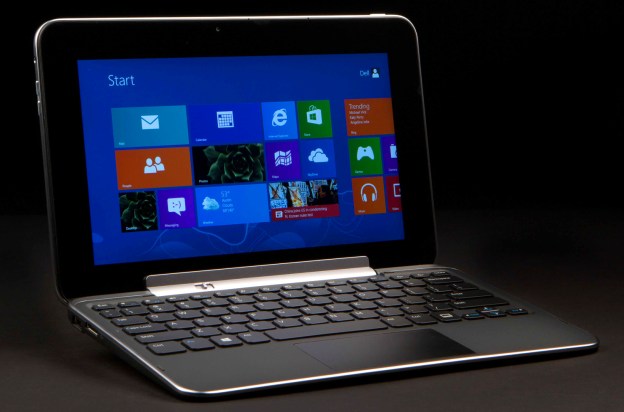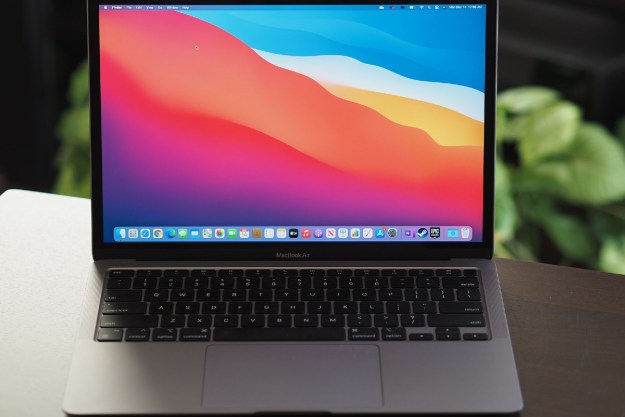
If you’re looking for a decent Windows RT device with 4G LTE connectivity, AT&T just added the Dell XPS 10 hybrid tablet-laptop to its lineup.
Announced on Dell’s blog today, this LTE model basically shares the same guts as its Wi-Fi only brother that we reviewed a couple of months back. It has a 10.1-inch 1366 x 768 pixel resolution touchscreen, a 1.5GHz dual-core Qualcomm Snapdragon S4 processor, 2GB RAM, a microSD Card slot where you can side-load content, as well as a micro-USB port to plug in an external mouse. As a standalone tablet, the XPS 10 should last just over nine hours of use (though we got five hours and 26 minutes from the slate at full screen brightness in the browser-based Peacekeeper battery test when we reviewed the XPS 10 in February).
Unfortunately, you can’t opt for the cheaper 32GB version of the XPS 10 like you could with the Wi-Fi version. If you want your Dell slate to be 4G-enabled for AT&T’s network, you must purchase the configuration that comes with 64GB of internal storage, GPS, and the LTE chip.
Though the keyboard dock is optional, we highly recommend it as it doubles the XPS 10’s battery life to 18.5 hours, and comes with a bunch of useful connectors and ports that make it easy to integrate the Windows RT slate into your digital life. Since you can use light-weight versions of familiar Windows software like Word and Excel on the XPS 10, the keyboard and trackpad in the dock are essential to helping your navigate the software when in RT’s Desktop mode. Plus, you get two USB ports and one microHDMI-out so you can easily hook the slate up to your HDTV.
The 4G-ready XPS 10 with Windows RT starts at $600 for just the slate, while the tablet and keyboard dock combo will set you back $750 – that is, before you even sign up with AT&T’s for its LTE mobile data service. You can order both options direct from Dell’s online store now.


